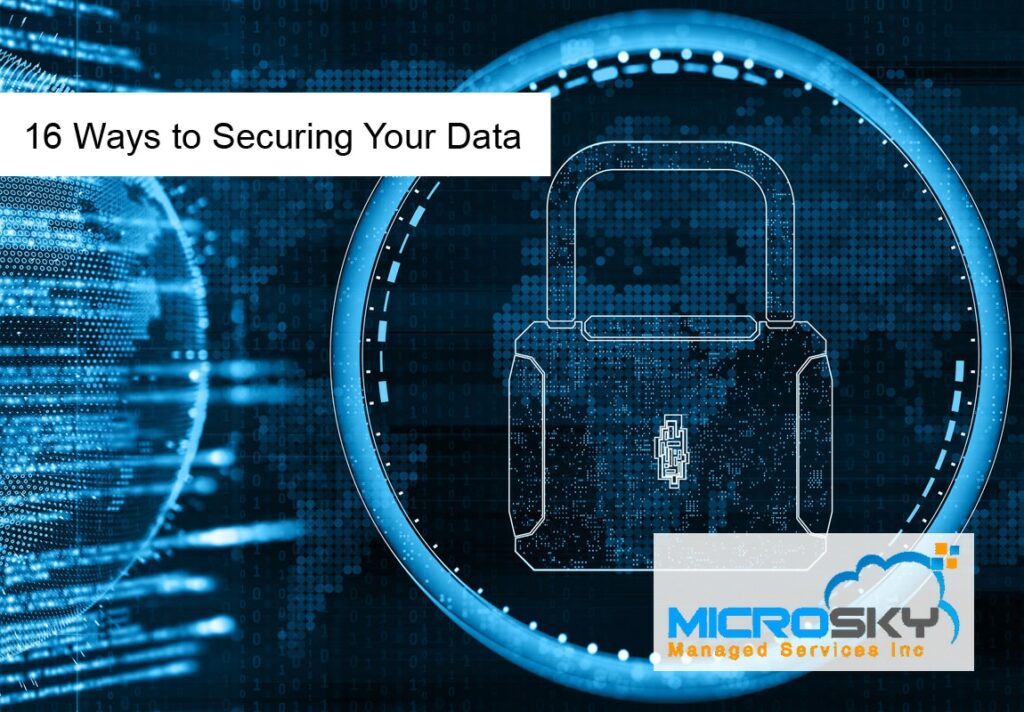
Data loss can happen to anyone and often at the most inopportune time. It’s a scary feeling when you think your data might be gone for good. Whether it was deleted, corrupted, or just disappeared from the face of the earth, there are many ways that essential files can disappear without a trace. Luckily, you’ll know how to prevent and fix any data problems before they become an issue with these simple steps!
- Backup Everything
Most people already have a backup routine set up, but it’s always worth checking to see if you’re not backing up the right things. Sometimes we don’t realize our computer lost all their data until after they could recover their important files from a hard drive in another location- and that would never happen with regular backups.
- Keep copies of critical files in separate locations
If you have a great backup system, it’s always best to keep backups in more than one place so that they’re not all lost at once, say from fire or flood damage. For example, don’t store the only copy of an important file with your laptop and expect it will be safe there; also, make sure to regularly back up different versions onto both hard drives and optical discs (CDs/DVDs).
- Check your program settings regularly
It’s always important to do this at least once a month, but it can make things easier in the long run if you remember to check your program settings regularly so that any new updates are installed and running as they should be. This way, you’re not relying on an outdated computer which creates vulnerabilities for hackers and malware- among other possible issues!
- Back up all photos and videos regularly
If you’ve got anything saved from social media sites like Instagram, Facebook, or Flickr, then make sure they’re backed up regularly too!
- Use security software
Security software can be downloaded and installed for free on many devices, so it’s a great way to keep your information safe from hackers!
- Make sure your antivirus is up-to-date
Make sure your antivirus is up-to-date on all devices you use – not just the main one!
It’s also essential to get new software updates as soon as they come out. That will help guard against any vulnerabilities hackers might be trying to exploit.
- Check the company that stores or hosts your data
Check-in every once in a while with the company that stores or hosts your data. The last thing you want is an unexpected outage or something else going wrong if you’re unaware of what might happen!
- Password Management Software
Consider password management software to help keep all of your passwords in one place. This can be a great way to make sure you have access if something happens to the device or you forget one.
- Create backups of all passwords
This will help make sure there’s less chance somebody could get into one account at the expense of another when things go south. It takes just two minutes to do using LastPass but even without them backing up password files is a good idea because they are still valuable pieces of personal data and should not be overlooked.
- See sites and apps using many data
Watch what sites and apps are using many data and disconnect from those if necessary so it doesn’t go over your limit or impact performance speeds for other things going on at the same time. This can be done in settings with mobile plans, Wi-Fi networks, etc., but there should always be something listed somewhere about how much bandwidth each resource uses per minute or hour.
- Be wary of opening suspicious emails
Be wary of opening suspicious emails and clicking on links in those messages. If you receive an email with a subject line that seems off, don’t open it. It can be a phishing attempt to get your information or make your device crash from malware.
- Turn on two-factor authentication
This way, when someone tries to log in and enter the wrong password too many times, access will automatically stop until there’s been some verification (typically by text message).
- Broadening permissions settings
Some other ways to protect data are broadening permissions settings, so only people who need permission are given complete control over specific files or folders. This helps cut down on accidental deletion if one person needs to share something, but the other person isn’t careful.
- Remove any files that are no longer needed.
Keep an eye on file sizes and delete old files that are no longer needed, so there’s less chance for malware/viruses getting into devices from infected USB sticks, etc.
- Check what applications are installed & set permissions accordingly
Think about which apps should only work when connected to Wi-Fi instead of mobile data networks (since they’re public). This is often true for games but not necessarily for things like Facebook.
- Use encryption programs for sensitive information
This is helpful when you need to send secure messages over email or protect financial transactions by encrypting them before sending. This can also work well for encrypting sensitive documents.
Now that you know all these steps, hopefully, you’ll be able to protect your data!
Data Recovery in NYC
Data recovery is the process of salvaging data that has been lost due to a computer system or storage device failure. There are many reasons why you may need to recover your files, and methods for doing so depend on what type of file was deleted or corrupted, in addition to how much time has passed since it occurred. To reduce vulnerability from future data loss, follow these best practices.
Microsky MS specializes in providing Data Recovery Services for various devices, hard drives, and operating systems. So if you’re experiencing any data loss, contact us today!



